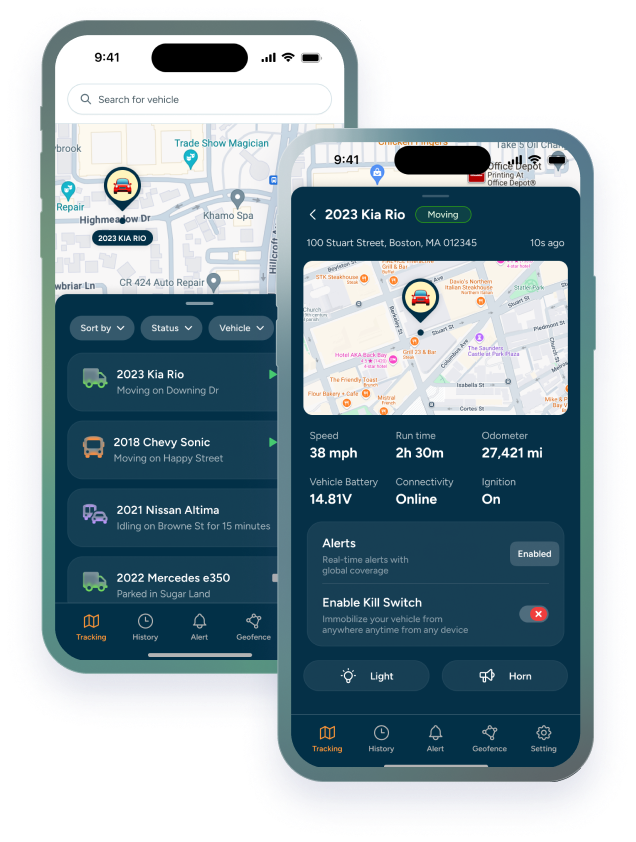In today’s fast-paced world, the ability to efficiently manage and monitor a fleet of vehicles is critical for businesses across various industries. Fleet management encompasses a broad range of functions that are designed to enhance the performance of a company’s vehicle fleet, improve safety, and reduce costs. This comprehensive guide explores the concept of fleet management, its importance in logistics, and how it works to streamline operations and boost customer service.
What is Fleet Management in Logistics?
In the realm of logistics, fleet management plays a pivotal role in ensuring that the movement of goods and services from one point to another is executed efficiently and effectively. It involves overseeing, organizing, and recording all aspects of a company’s fleet operations, from the acquisition of vehicles to their maintenance, management, and disposal. This strategic management allows companies to minimize risks associated with vehicle investment, improve efficiency and productivity, and comply with government regulations, all while reducing their overall transportation and staff costs.
Fleet management in logistics is not just about managing vehicles; it’s about optimizing the entire supply chain to ensure timely delivery and maximize customer satisfaction. By integrating advanced fleet management software, logistics operations gain real-time visibility into vehicle locations, fuel consumption, and driver behaviors, enabling smarter decisions and more efficient fleet operations.
How Fleet Management Works
Fleet management leverages technology, software, and management practices to help businesses achieve a more efficient and effective operation of their fleet. Here’s how it works:
Utilizing Fleet Management Software
At the core of modern fleet management is fleet management software. This technology provides fleet managers with the tools they need to track and manage their vehicles efficiently. With features such as GPS fleet tracking, route planning and optimization, and real-time visibility into fleet operations, management software is indispensable for effective fleet management. It helps in reducing fuel consumption, ensuring driver safety, and improving overall operational efficiency.
Enhancing Fuel Management
Fuel management is a critical component of fleet management, as fuel costs can significantly impact a company’s bottom line. Fleet management solutions include tools for monitoring fuel consumption, identifying fuel wastage, and optimizing fuel usage. By leveraging data from these tools, fleet managers can make informed decisions that lead to more efficient fuel management practices.
Improving Driver Safety and Efficiency
Driver safety is paramount in fleet management. Management software includes features that monitor driver behavior, including speeding, harsh braking, and rapid acceleration. By analyzing this data, fleet managers can implement driver safety programs and provide training to reduce accidents and improve overall fleet safety.
Optimizing Routes for Better Customer Service
Route optimization is another crucial feature of fleet management software. It enables fleet managers to plan the most efficient routes for their drivers, taking into account traffic conditions, delivery windows, and customer requirements. This not only reduces fuel consumption and vehicle wear and tear but also ensures that deliveries are made on time, thereby improving customer service.
Implementing Proof of Delivery Systems
Proof of delivery is an essential aspect of logistics and supply chain management. Fleet management solutions often include digital proof of delivery options, such as electronic signatures and photo verification. These systems provide real-time confirmation of delivery, enhancing the transparency and reliability of logistics operations.
Conclusion
Fleet management is a comprehensive approach to managing a company’s vehicle fleet, with the goal of improving efficiency, reducing costs, and enhancing safety. Through the use of advanced fleet management software, companies can gain real-time visibility into their fleet operations, optimize routes, manage fuel consumption, and improve driver safety. As an integral part of logistics and supply chain management, efficient fleet management ensures that goods are delivered on time, costs are kept under control, and customer satisfaction is maximized.
For businesses looking to streamline their fleet operations, adopting the right fleet management solutions is essential. With the right tools and practices in place, fleet managers can transform their fleet into a well-oiled machine that supports the company’s broader logistics and supply chain goals.

Comments